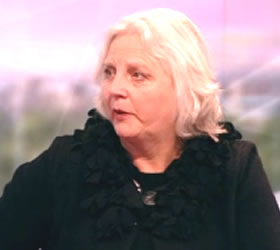 Convicted prisoners will get the right to vote, the government is expected to announce later this week.Five years ago the European Court of Human Rights (ECHR) ruled the UK’s ban on inmates voting was unlawful.The government has been advised that continuing to resist the ruling would lead to compensation payouts costing millions of pounds.Convicted killer John Hirst said prisoners had to have a legitimate channel to air their grievances.
Convicted prisoners will get the right to vote, the government is expected to announce later this week.Five years ago the European Court of Human Rights (ECHR) ruled the UK’s ban on inmates voting was unlawful.The government has been advised that continuing to resist the ruling would lead to compensation payouts costing millions of pounds.Convicted killer John Hirst said prisoners had to have a legitimate channel to air their grievances.
Mr Hirst, who took the case to the European Court, said: “The whole thing about this is that in this system where you’ve got a democracy, that people can put pressure and lobby in Parliament for changes in the law and improved conditions, but you can’t do that if you haven’t got the vote.”All prisoners can do is riot, if they’ve got a complaint, so you’ve got to give them this legitimate channel to bring their issue in.”Prime Minister David Cameron was said to have reluctantly accepted there was no way of maintaining the 140-year-old ban on sentenced prisoners voting in general elections, according to BBC political correspondent Reeta Chakrabarti.But our correspondent says he will resist allowing the vote to those prisoners who have committed the most serious offences, such as serial killers and child murderers.The move is likely to be unpopular with many Conservative MPs but Lord Falconer, a former Labour justice secretary, said it would be “incredibly disproportionate and wrong” for Britain to simply pull out of the ECHR.Prisoners on remand awaiting trial, fine defaulters and people jailed for contempt of court are already permitted to vote but more than 70,000 prisoners currently serving sentences in UK jails are prevented.Prisoners were originally denied the right to vote while serving a sentence under the 1870 Forfeiture Act and the ban was retained in the Representation of the People Act of 1983.Following a legal challenge brought by Mr Hirst, who was convicted of manslaughter, a final European Court of Human Rights (ECHR) ruling in 2005 said the blanket ban was discriminatory and breached the European Convention on Human Rights.
In June the Council of Europe, an inter-governmental organisation that oversees and enforces rulings made by the ECHR, urged the coalition to act.Under the ECHR ruling each country can decide which offences should carry restrictions to voting rights.According to the Daily Telegraph, the ban could be retained for murderers and others serving life sentences and judges may be given responsibility for deciding which criminals should be allowed to vote when sentencing.The newspaper also reports that one plan is to allow inmates a vote based on their most recent postal address to stop an entire prison coming under a single constituency.Juliet Lyon, director of the Prison Reform Trust, told the BBC: “People go to prison to lose their liberty, but they don’t go for other punishments, and very many prison governors believe it [voting] is an important part of resettlement, it’s a part of taking part in society.”Prison is about rehabilitation as well as about punishment.”
But David Green, director of the think tank Civitas, said the government had been forced into this decision by the ECHR and he said: “It is another example of judges acting as if they were politicians. It is judicial empire-building.”The government should make only the smallest possible concession – perhaps by giving the vote to prisoners sentenced to six months or less. The ban should remain for all the others.”If it leads to further legal action, so be it. In the longer term, Parliament should pass a law making the decisions of the British Parliament superior to any rulings of the European Court.”Frances Crook, director of the Howard League for Penal Reform, welcomed the decision, saying: “One of the hallmarks of citizenship is the right to vote. At the same time, voting is both a right and a responsibility.”If we want prisoners to return safely to the community, feeling they have a stake in society, then the right to vote is a good means of engaging individuals with the responsibilities of citizenship – Bbc











